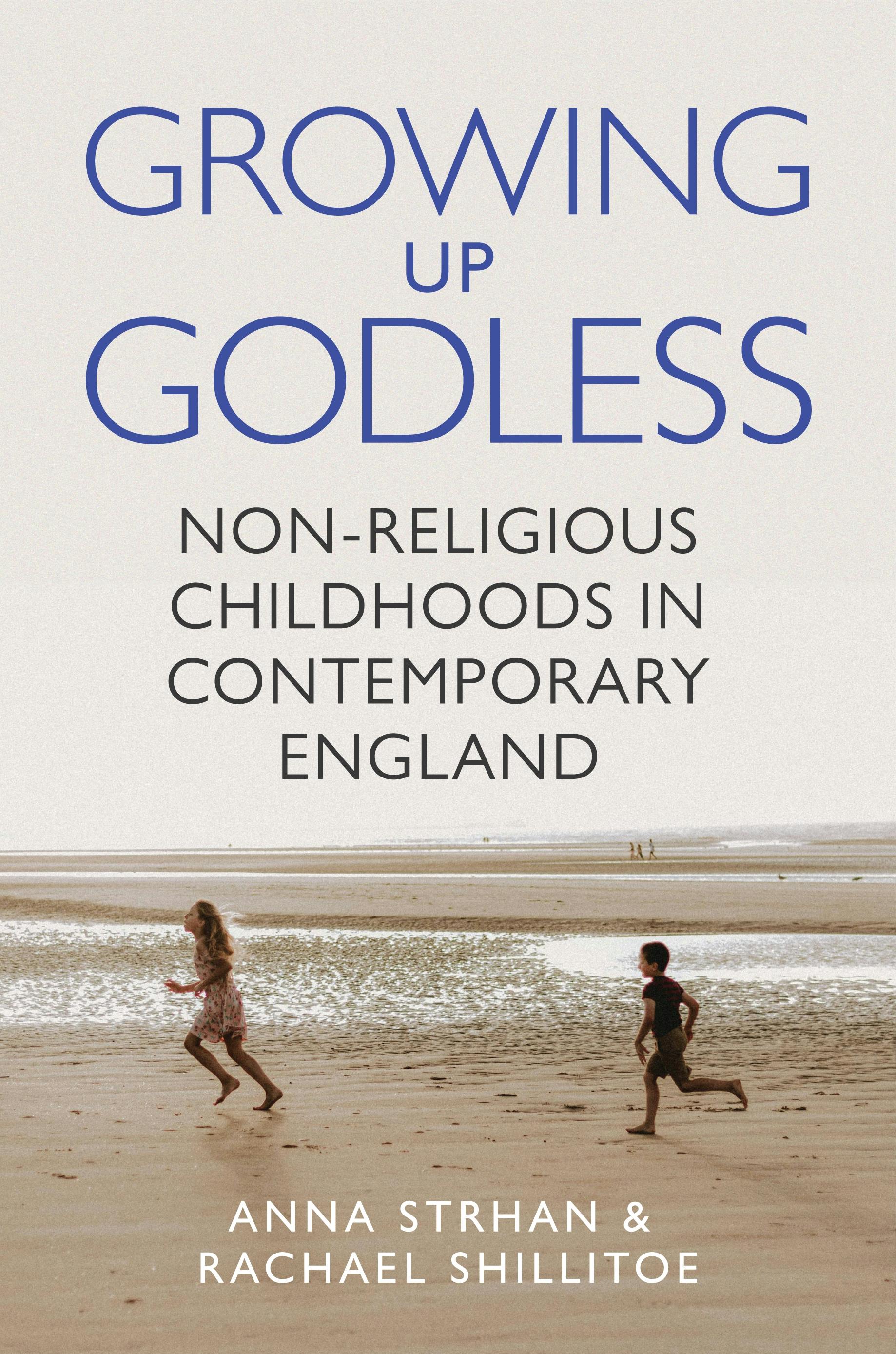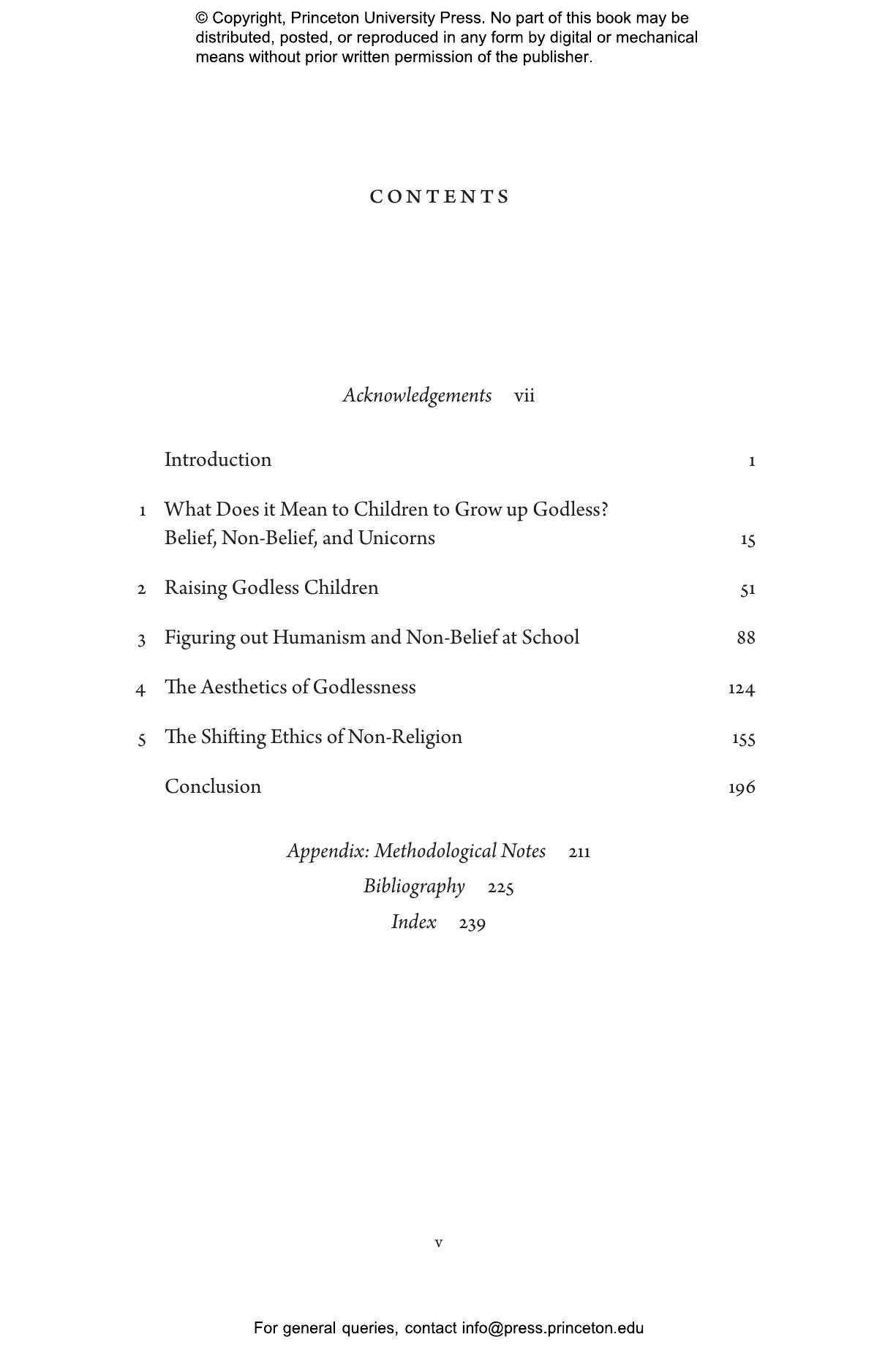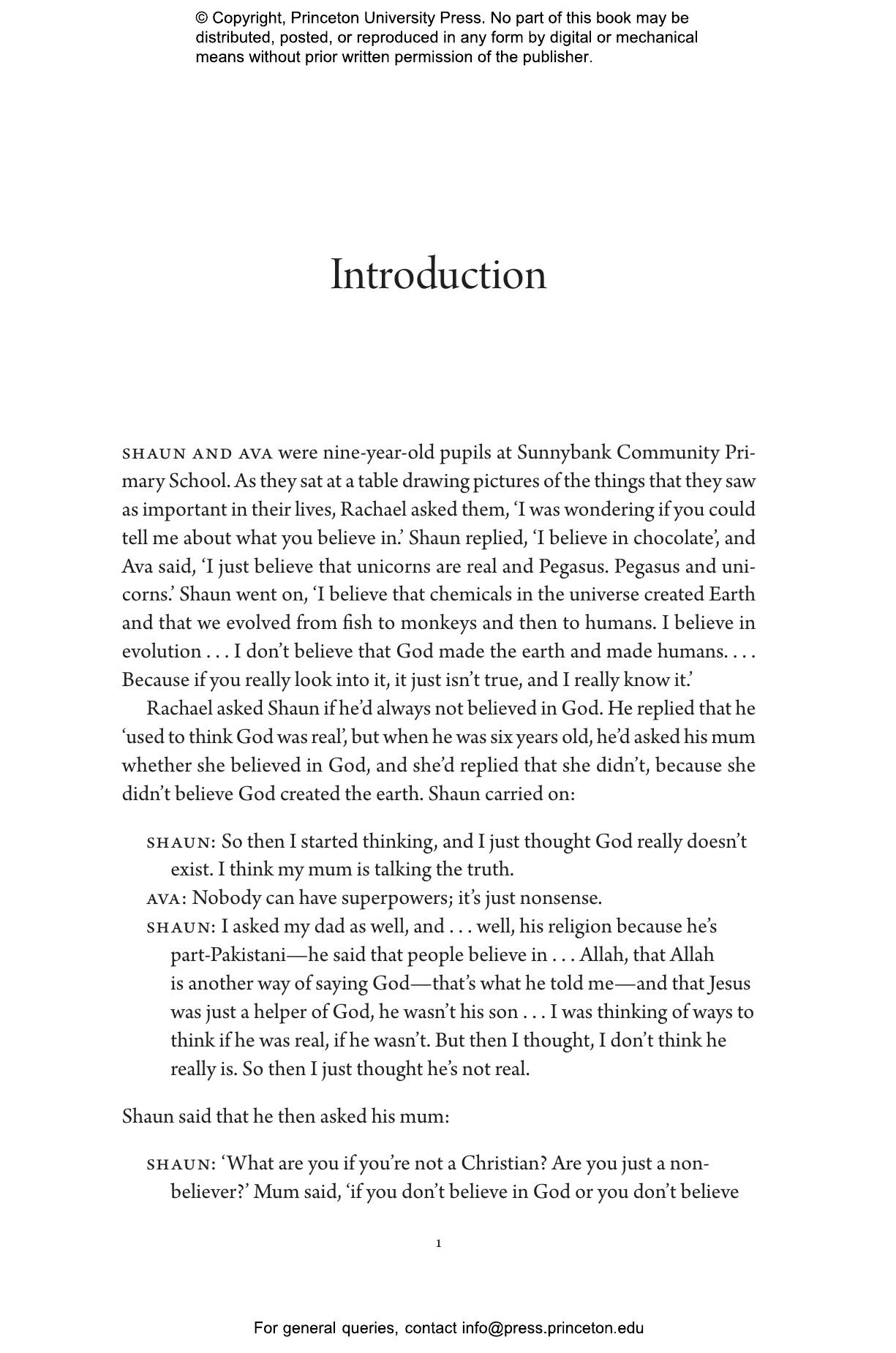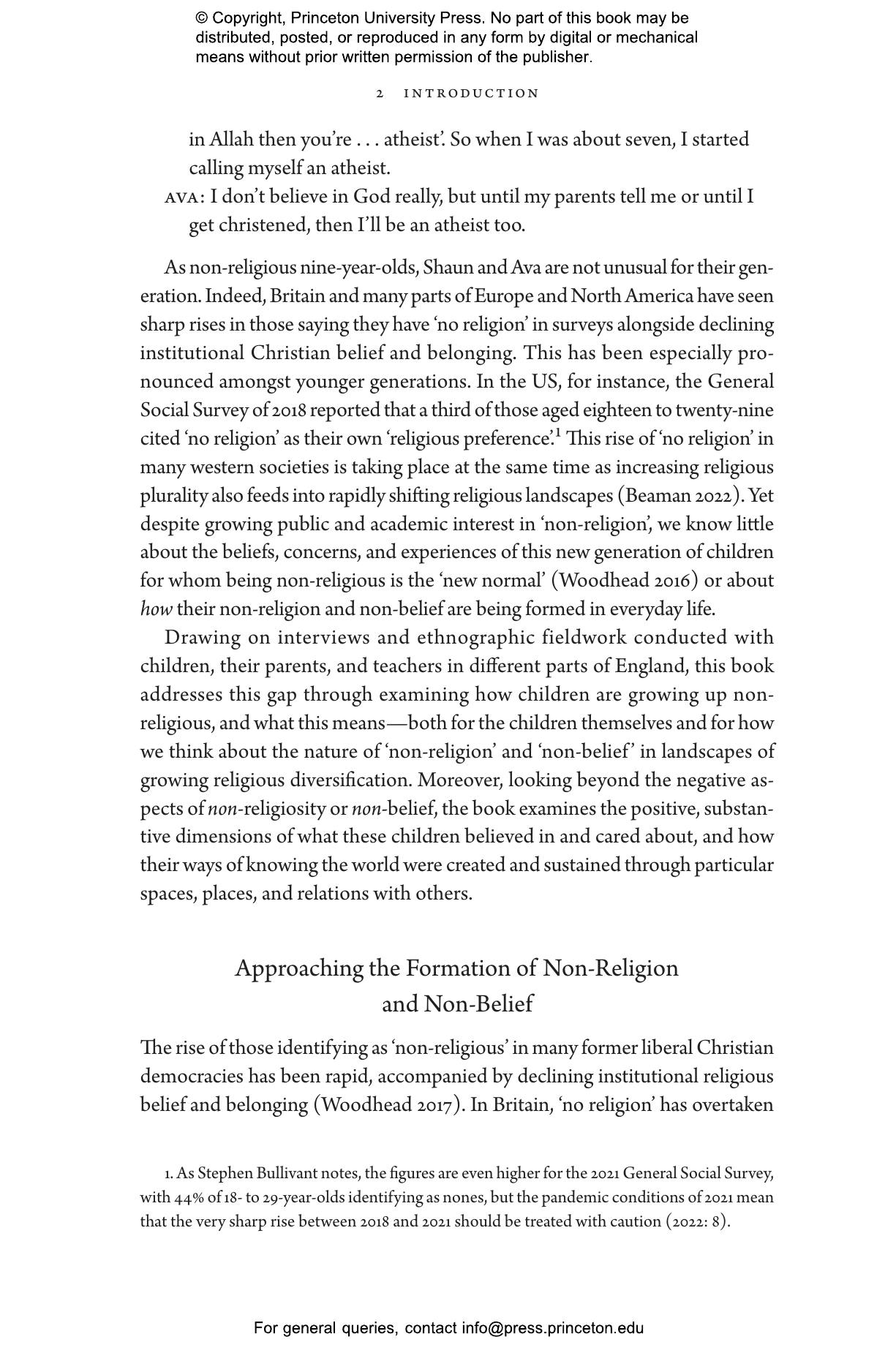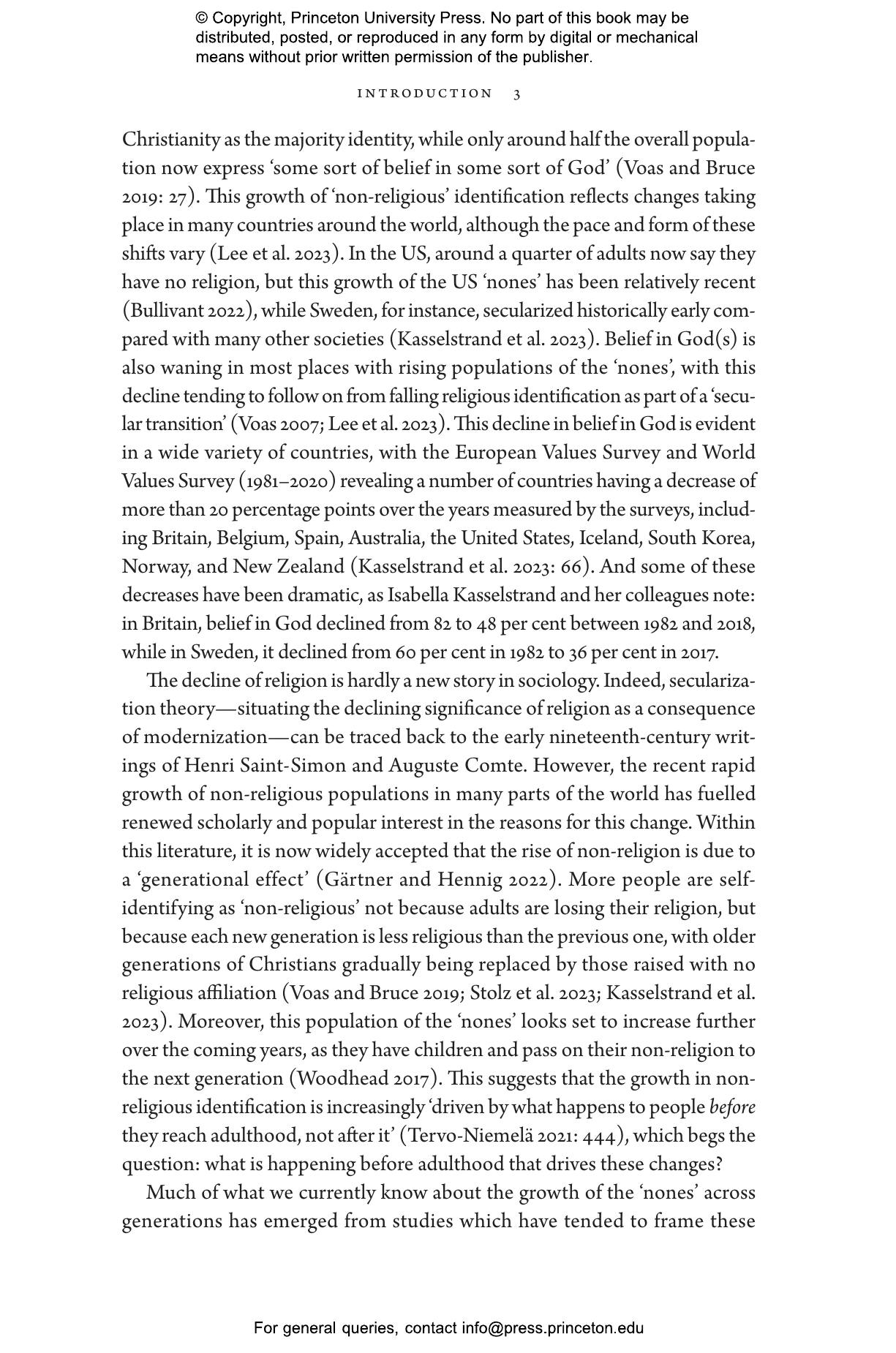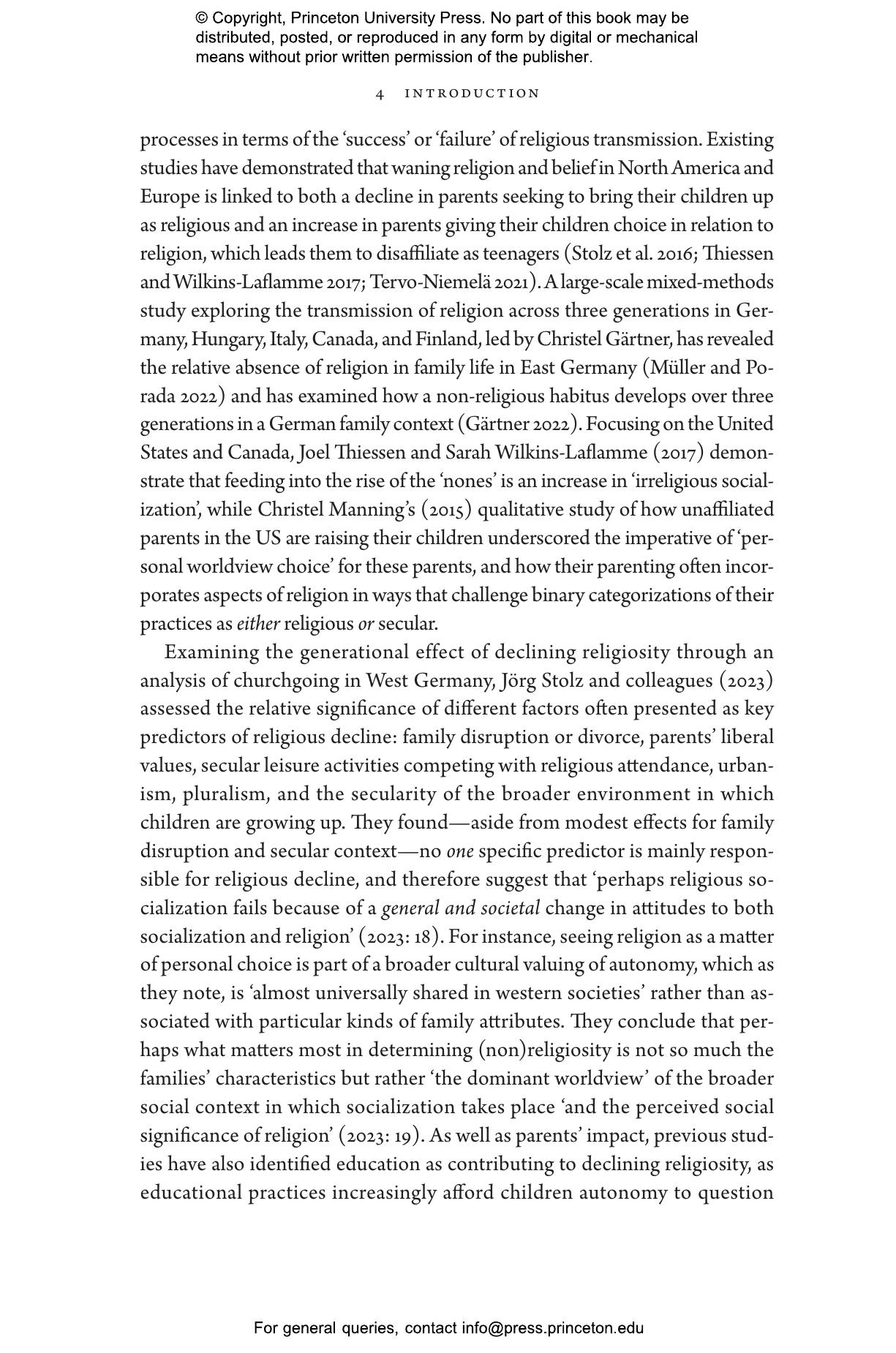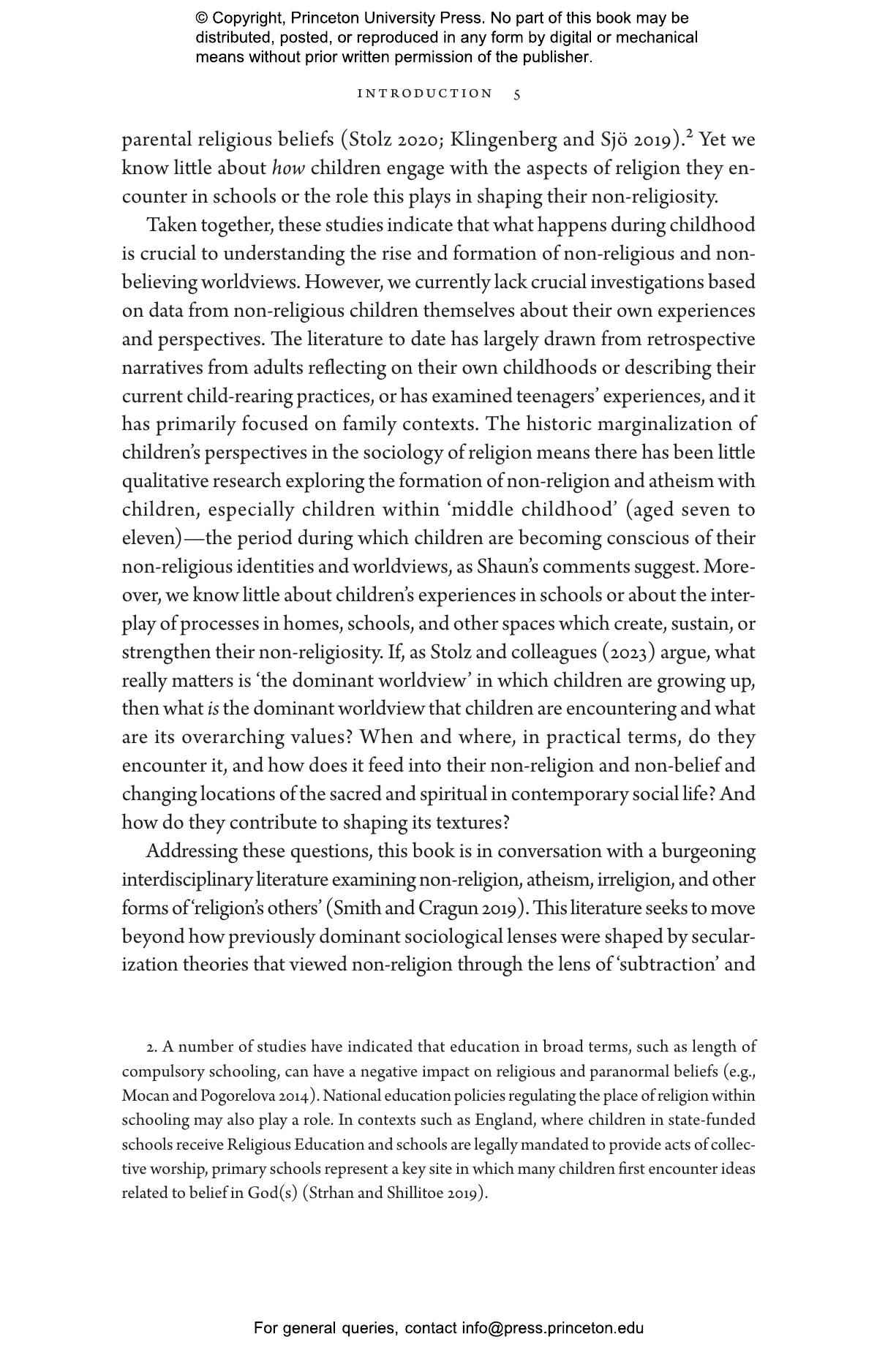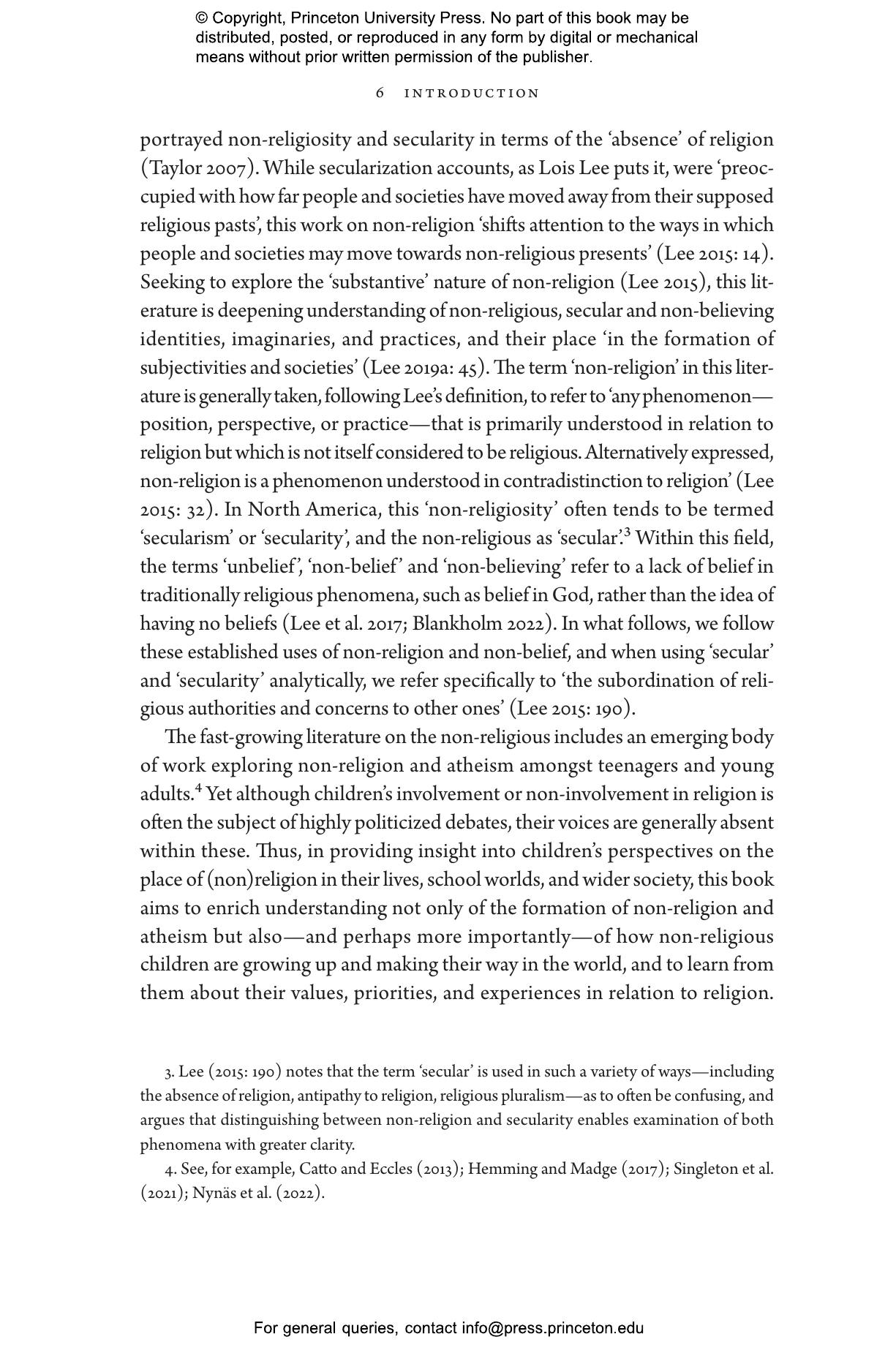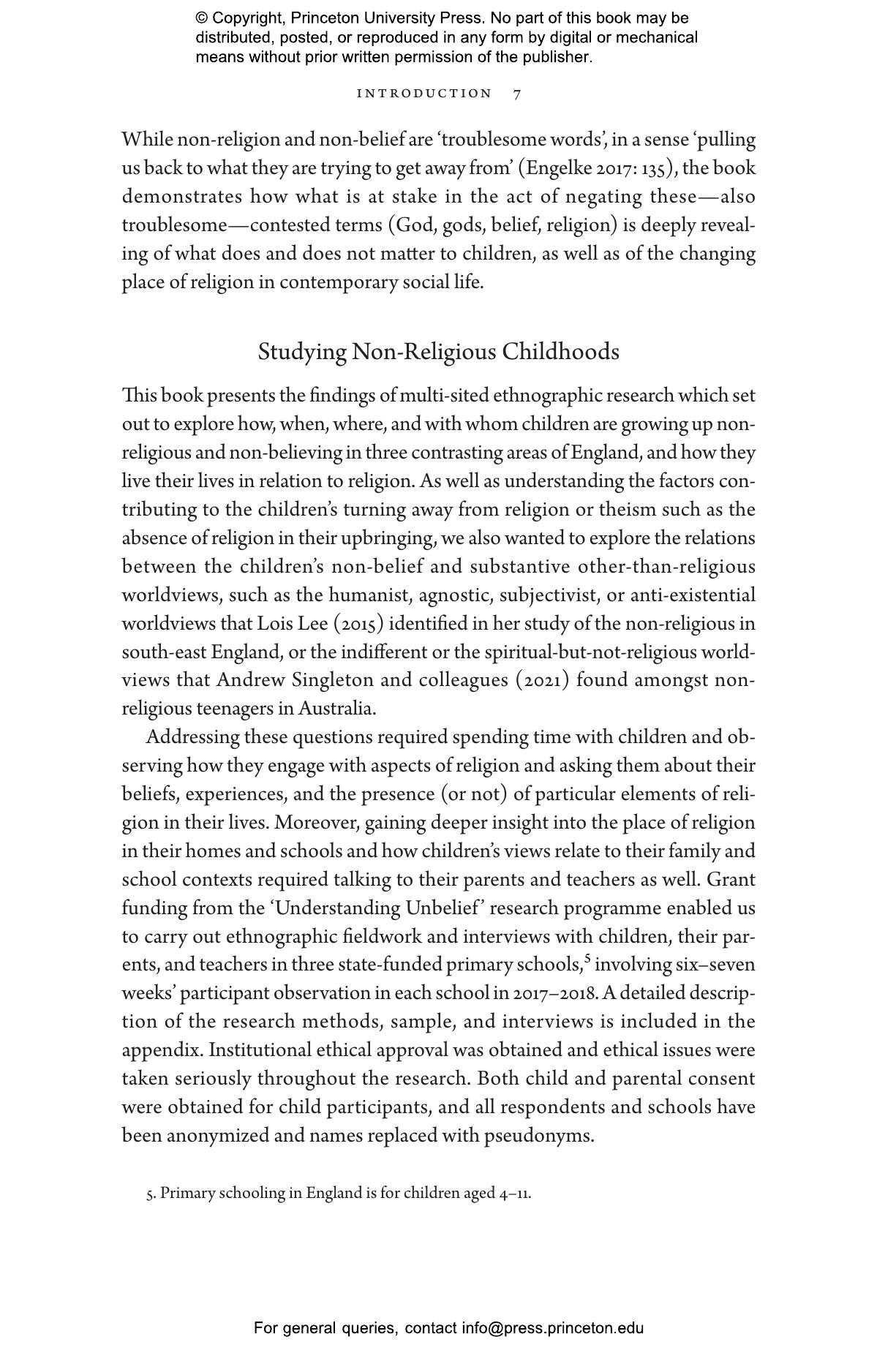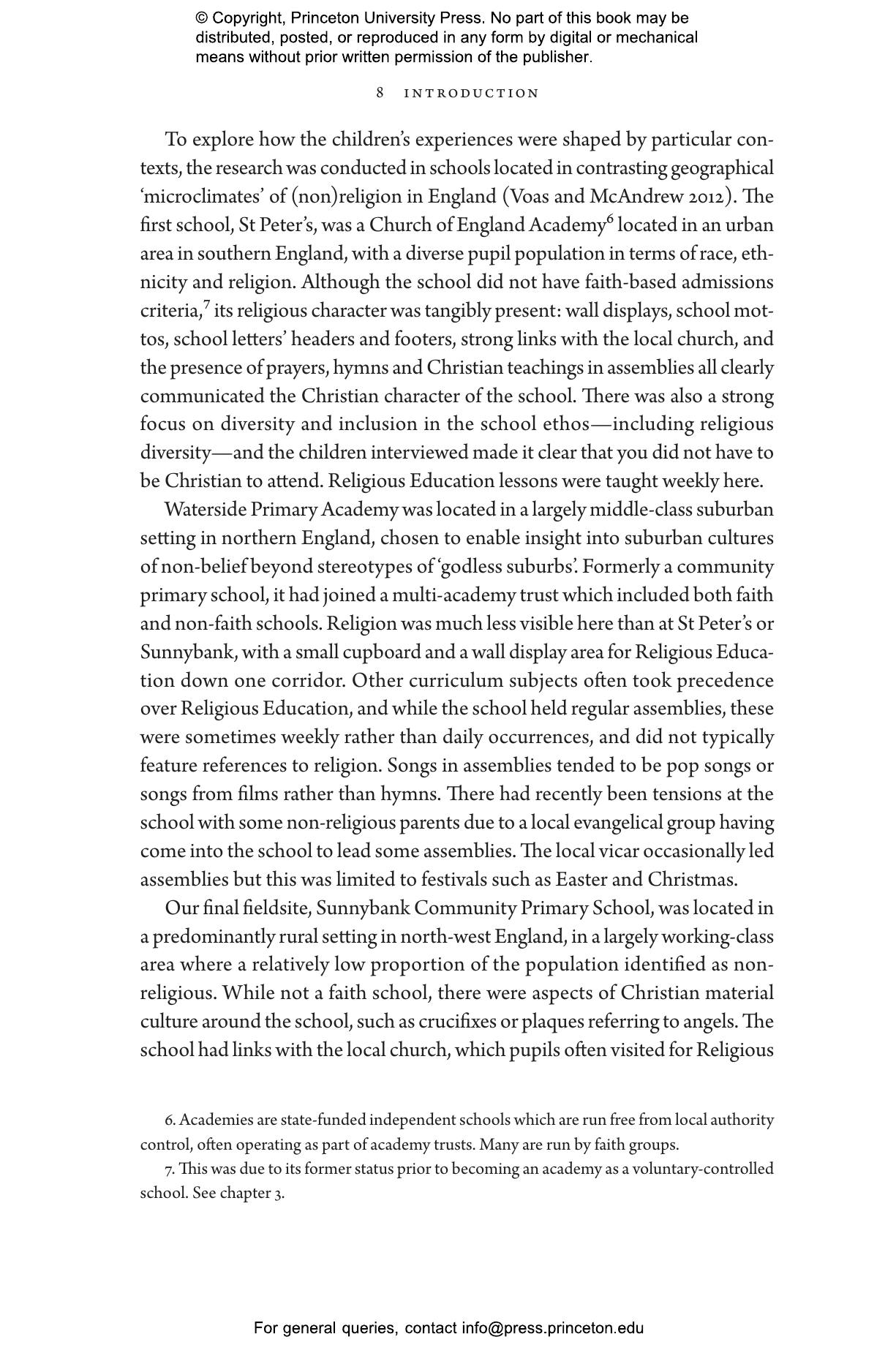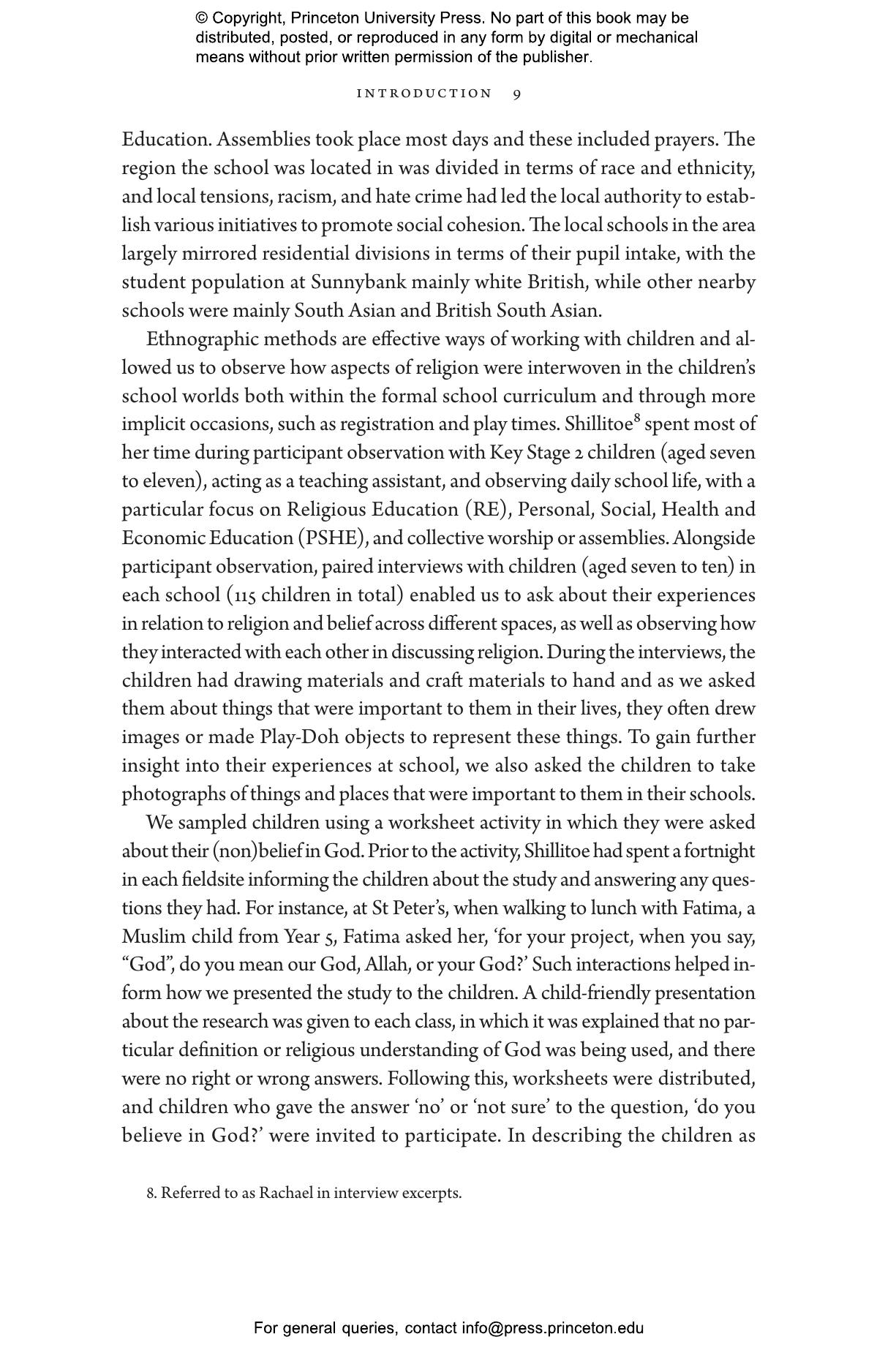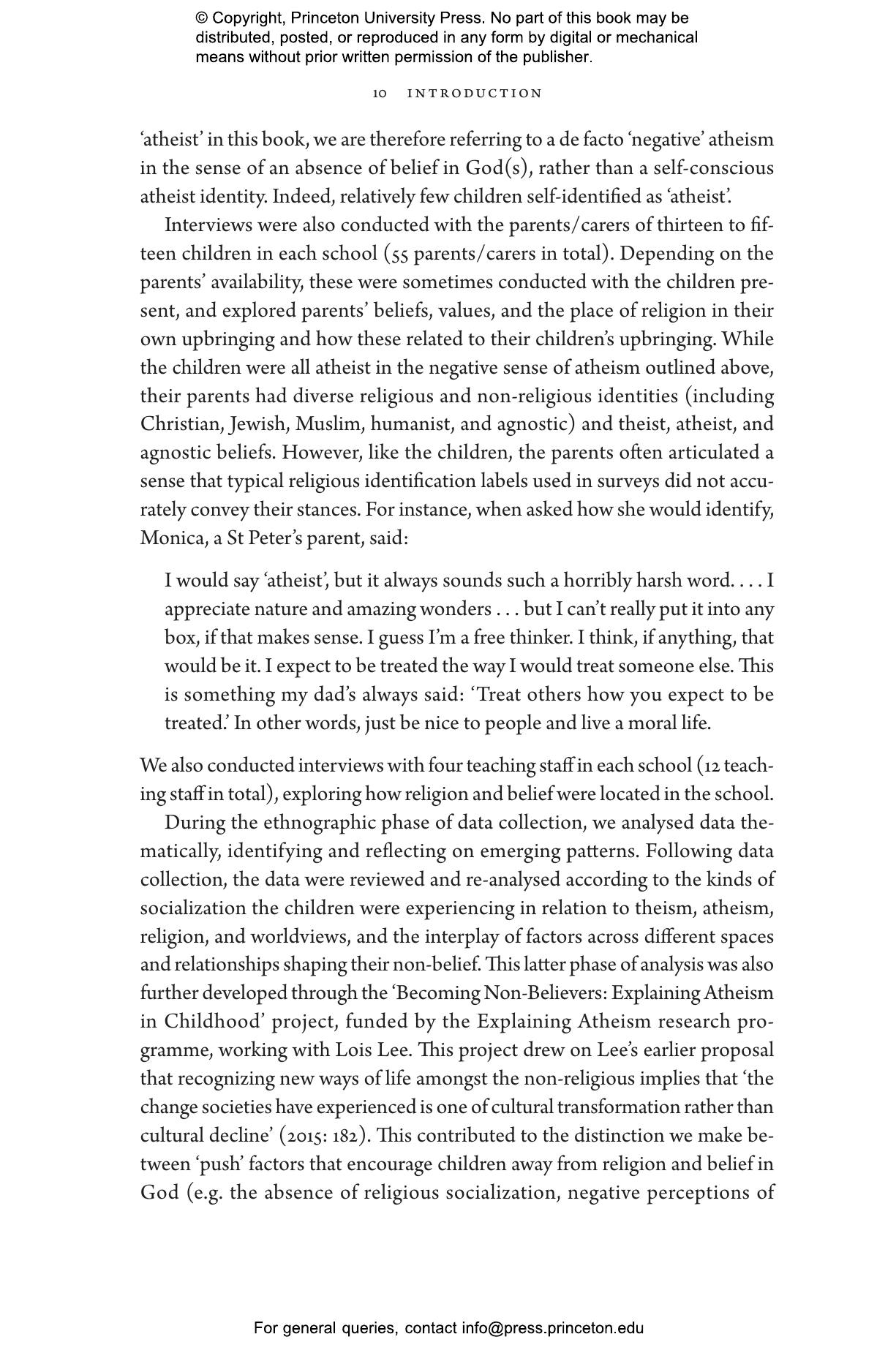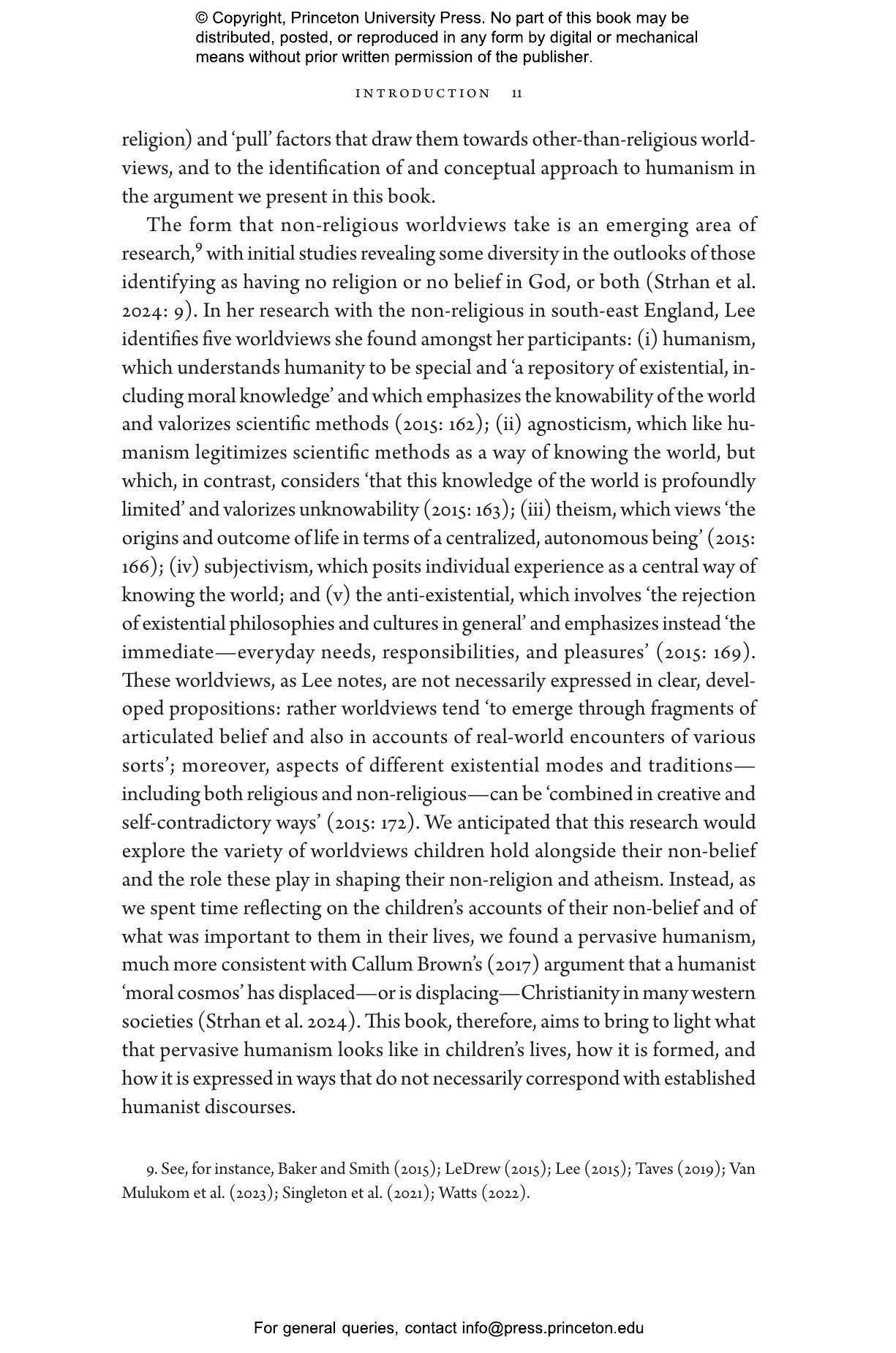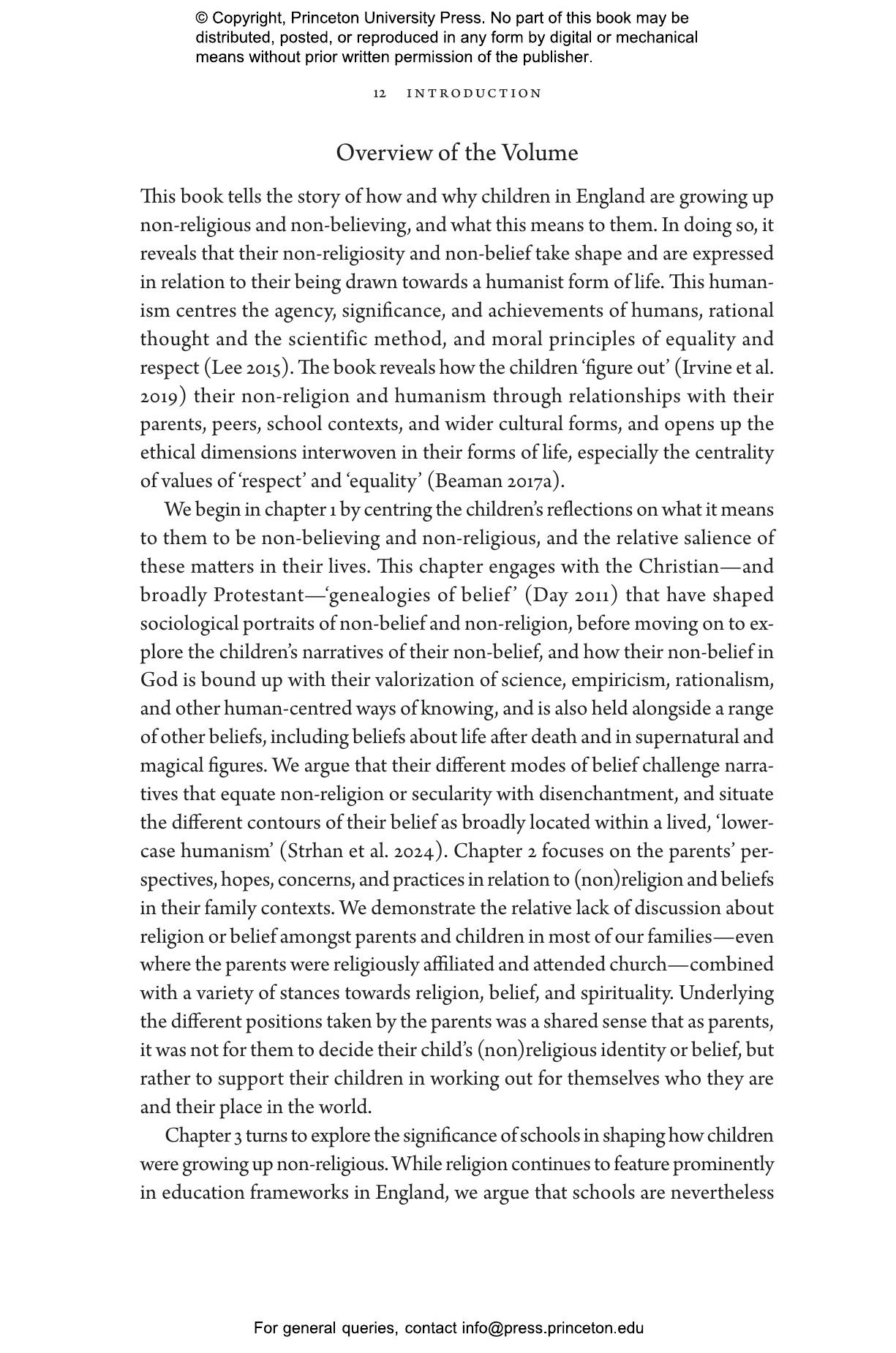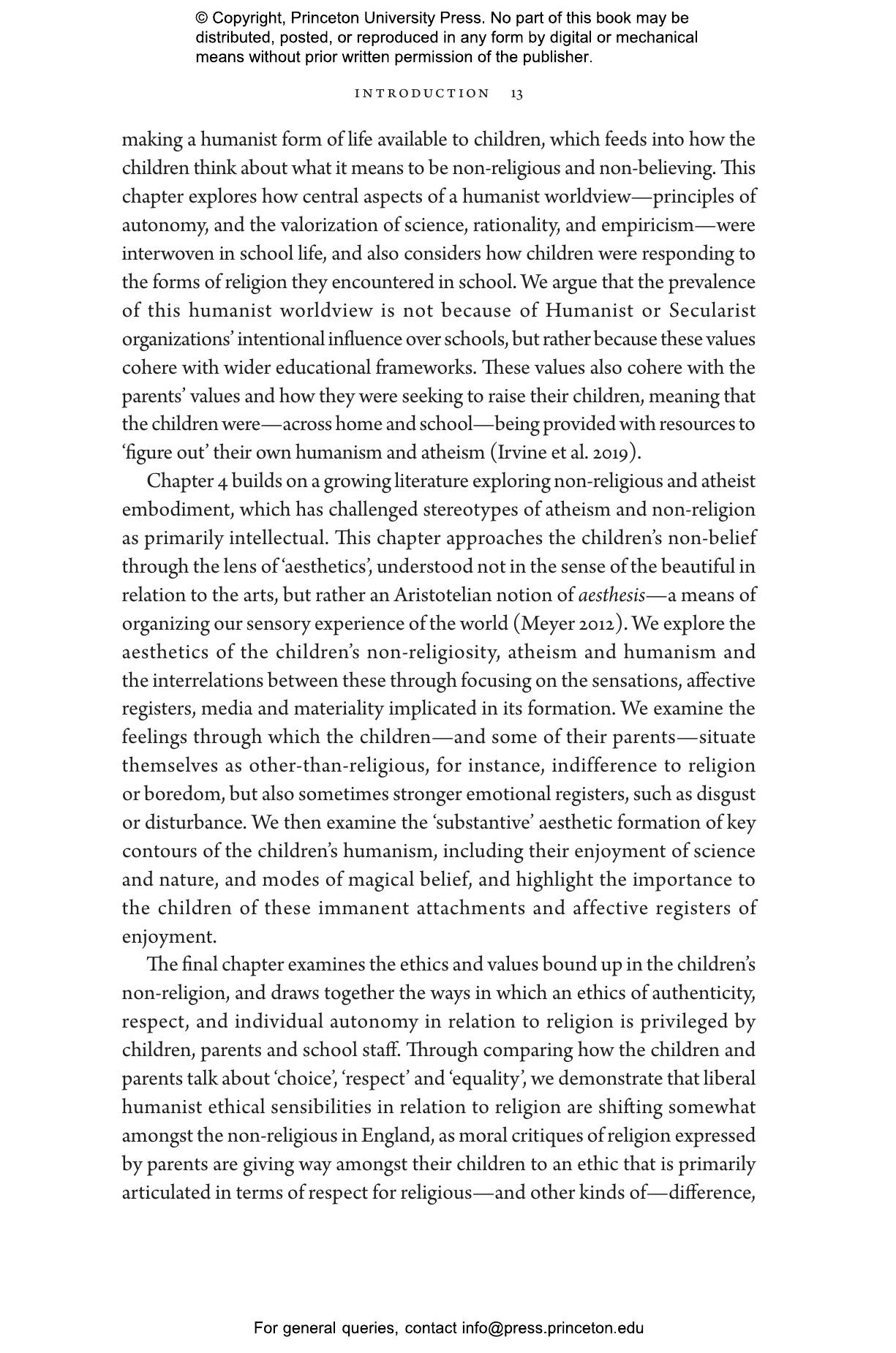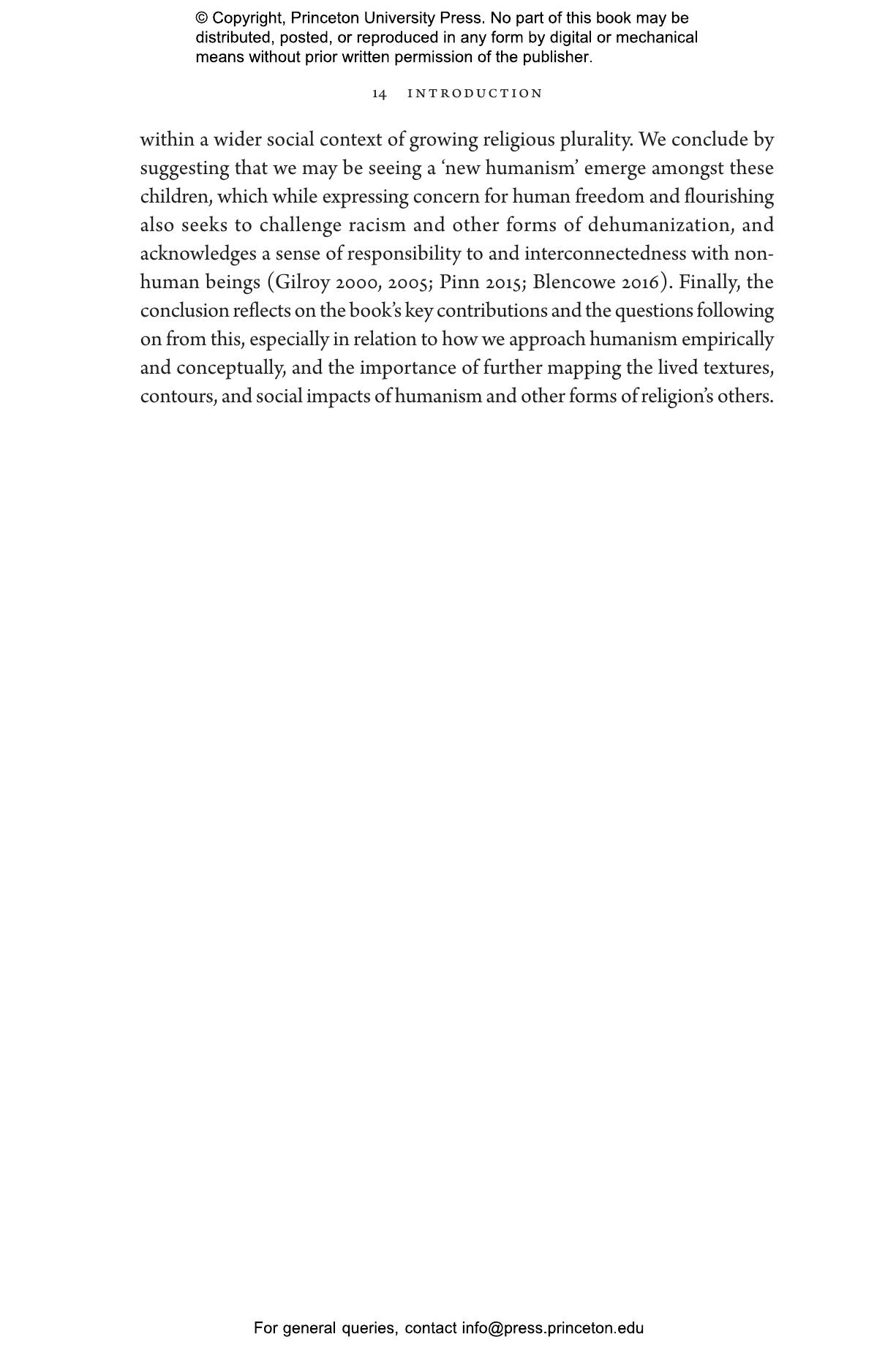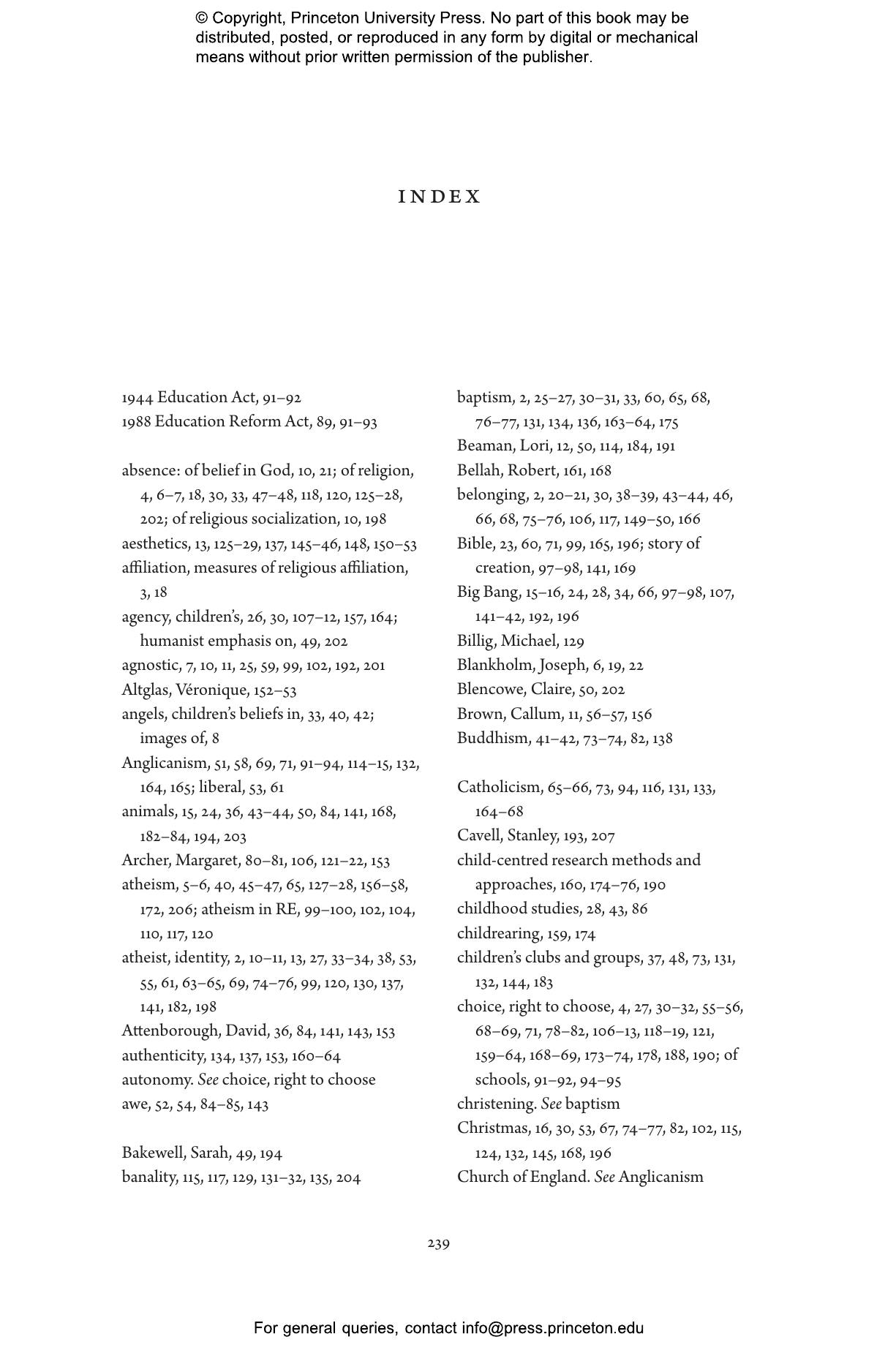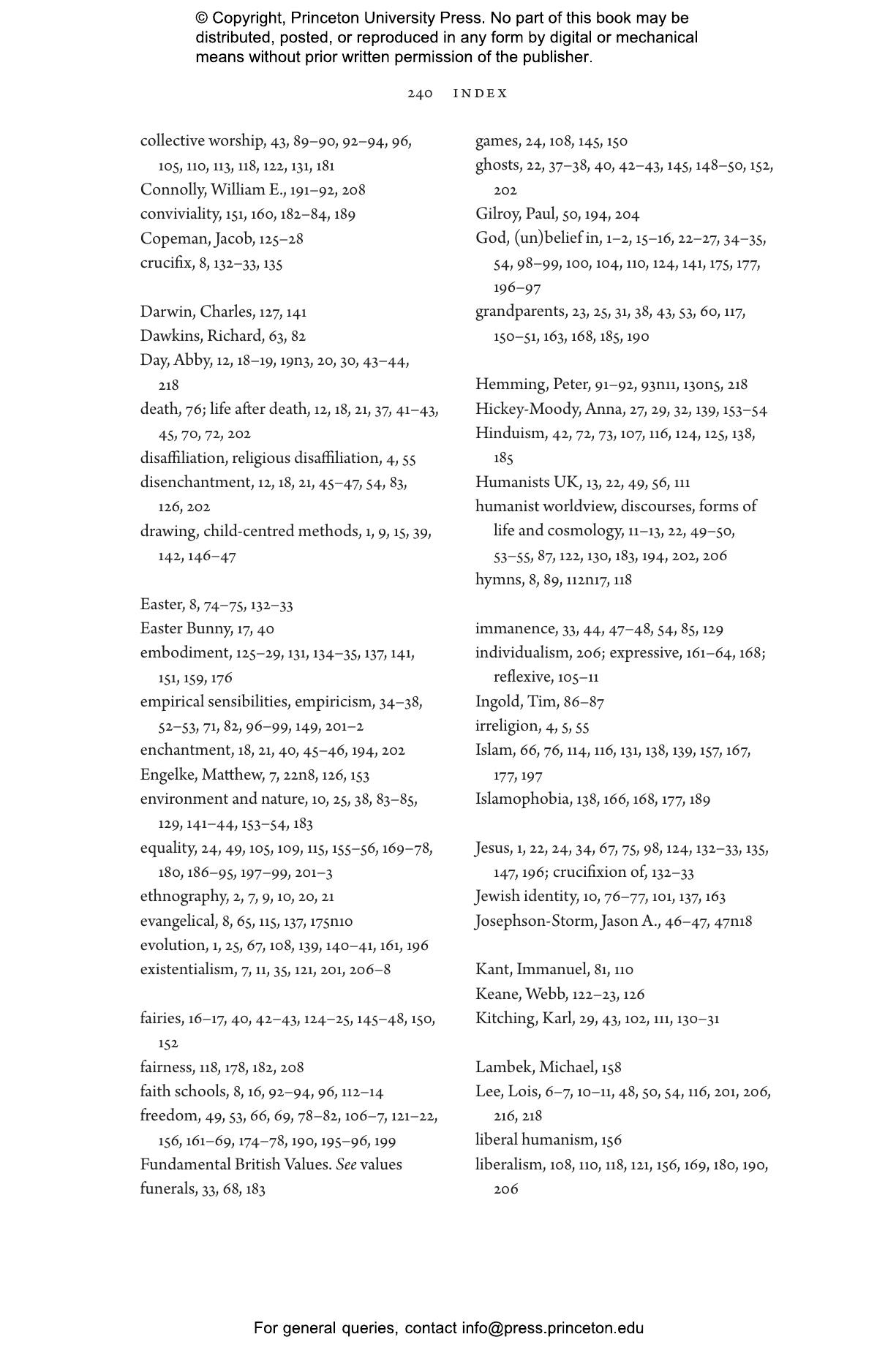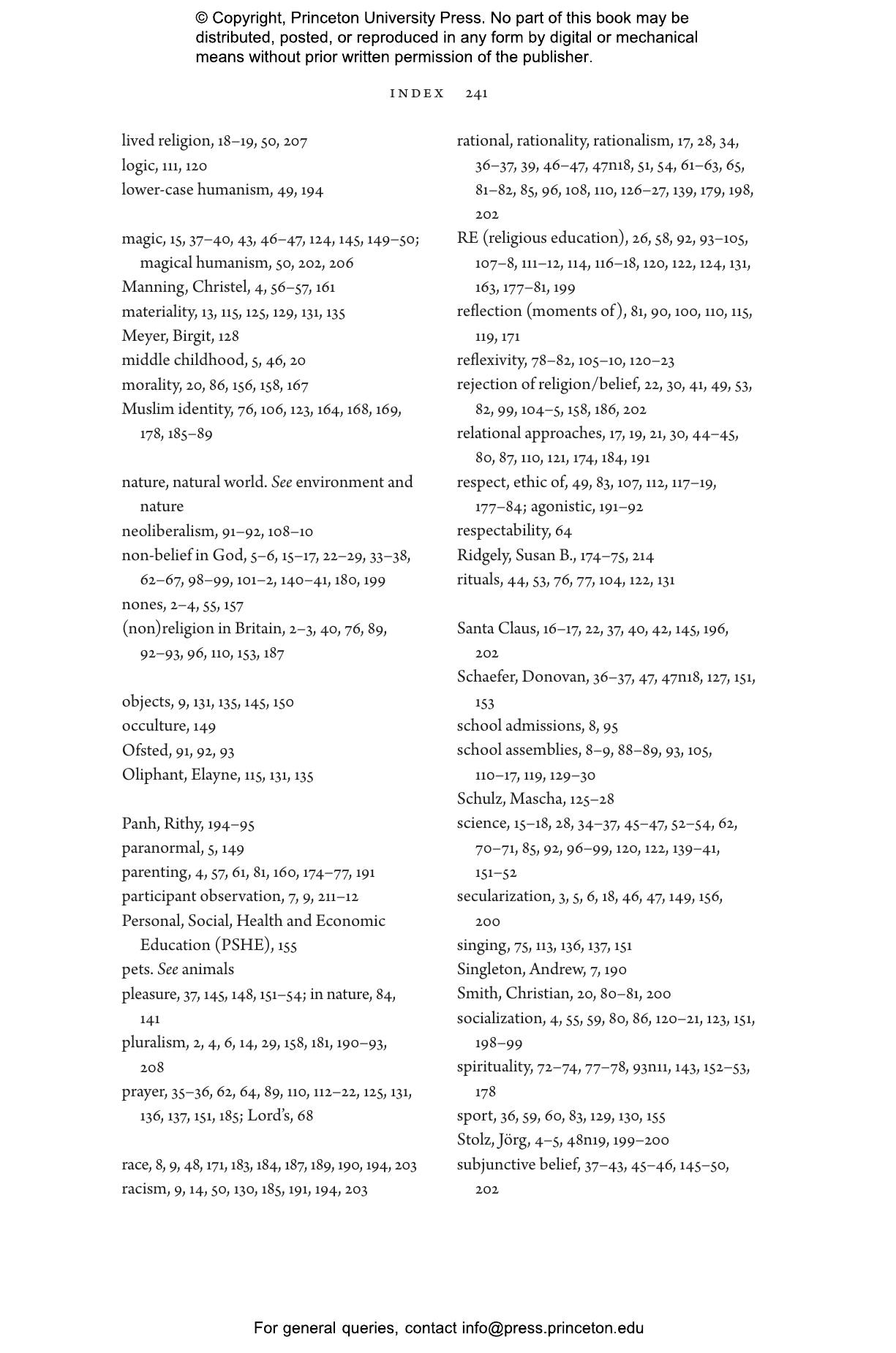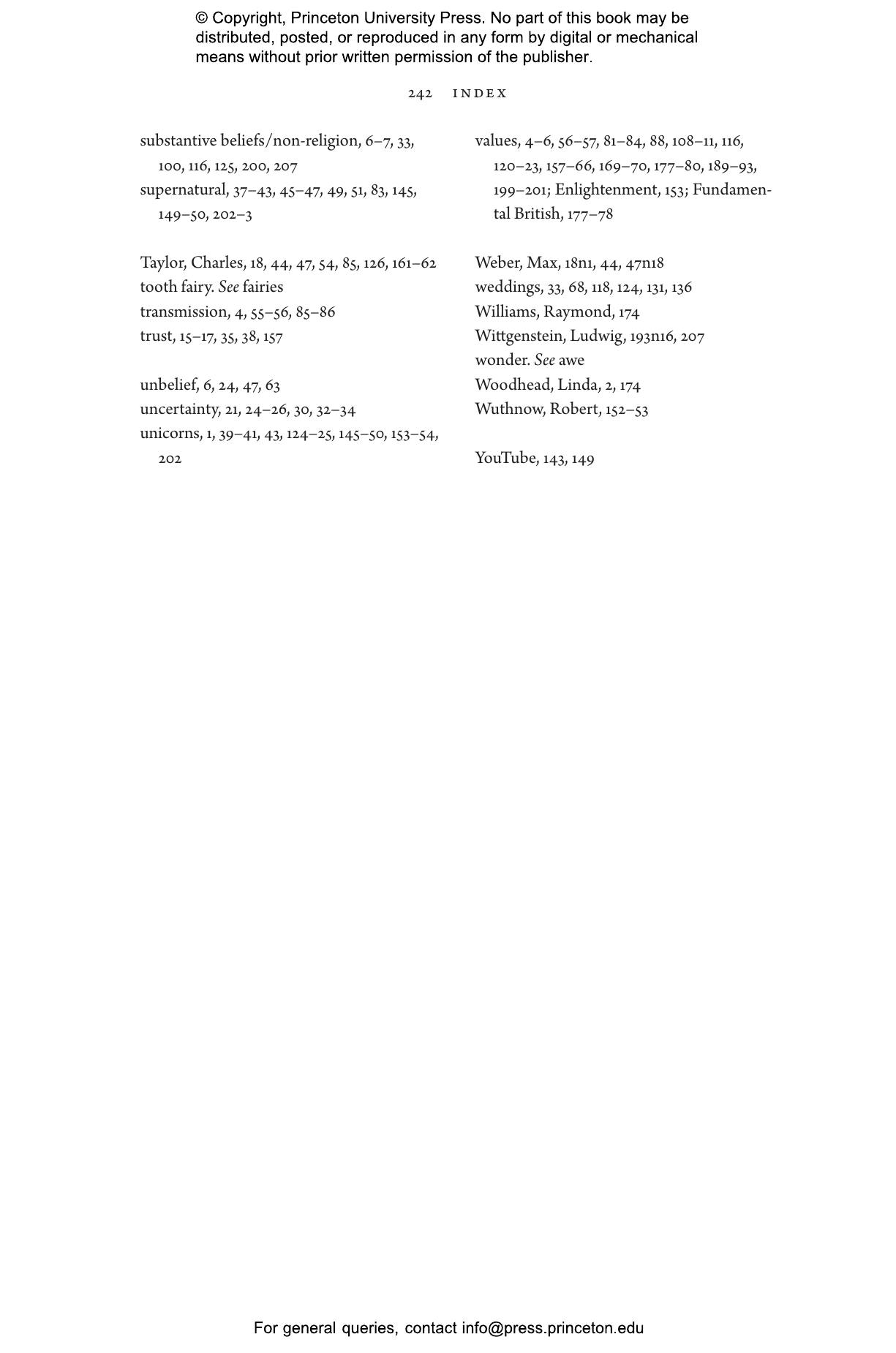The number of those identifying as ânon-religiousâ has risen rapidly in Britain and many other parts of Europe and North America. Although non-religion and non-belief are especially prevalent among younger people, we know little about the experience of children who are growing up without religion. In Growing Up Godless, Anna Strhan and Rachael Shillitoe fill this scholarly gap, examining how, when, where, and with whom children in England learn to be non-religious and non-believing. Drawing on in-depth interviews and extensive ethnographic fieldwork with children, their parents, and teachers, Strhan and Shillitoe offer a pioneering account of what these children believe in and care about and how they navigate a social landscape of growing religious diversity.
Moving beyond the conventional understanding of non-religion as merely the absence of religion, Strhan and Shillitoe show how childrenâs non-religion and non-belief emerge in relation to a pervasive humanismâcentering the agency, significance, and achievements of humans and values of equality and respectâinterwoven in their homes, schools, media, and culture. Their findings offer important new insight into the rise and formation of non-religious identities and, more broadly, the ways that childrenâs beliefs and values are shaped in contemporary society.
Anna Strhan is reader in sociology at the University of York. She is the author of The Figure of the Child in Contemporary Evangelicalism and Aliens and Strangers? The Struggle for Coherence in the Everyday Lives of Evangelicals. Rachael Shillitoe is a Leverhulme Early Career Fellow at the University of Birmingham. She is the author of Negotiating Religion and Non-religion in Childhood: Experiences of Worship in School.
“This is the first full-length, comprehensive ethnographic study of non-religious childhood of which I’m aware. The methodology used by Shillitoe and Strhan is impeccable. The comprehensiveness of their research, both into the lives of their subjects and into the current literature, is remarkable.”—Susan B. Ridgely, University of Wisconsin–Madison
“Intriguing and compelling. The book makes a significant scholarly contribution. It presents the substantive content of non-religious worldviews and brings strong empirical data into conversation with the theoretical preoccupations of those studying non-religion, engaging with the relevant scholarship in a productive rather than polemical manner.”—Lori G. Beaman, University of Ottawa
“Growing Up Godless succeeds on two levels. The quotes and insights from the kids make the book engaging and fun, which isn't always the case with rigorous academic research. Additionally, the book is filled with keen insights about the nuanced nature of childhood socialization in schools and homes, the emergence of a humanist culture and value system, and how secularization may not be intentional but rather the side effect of shifting values, beliefs, and behaviors. Who would have guessed that ‘suffering the little children’ is a great way to advance science?”—Ryan T. Cragun, University of Tampa
This publication has been produced to meet accepted Accessibility standards and contains various accessibility features including concise image descriptions, a table of contents, a page list to navigate to pages corresponding to the print source version, and elements such as headings for structured navigation. Appearance of the text and page layout can be modified according to the capabilities of the reading system.
Accessibility Features
-
WCAG v2.2
-
WCAG level AA
-
Table of contents navigation
-
Single logical reading order
-
Short alternative textual descriptions
-
Print-equivalent page numbering
-
Landmark navigation
-
Index navigation
-
Epub Accessibility Specification 1.1
-
ARIA roles provided
-
All non-decorative content supports reading without sight
-
No known hazards or warnings


